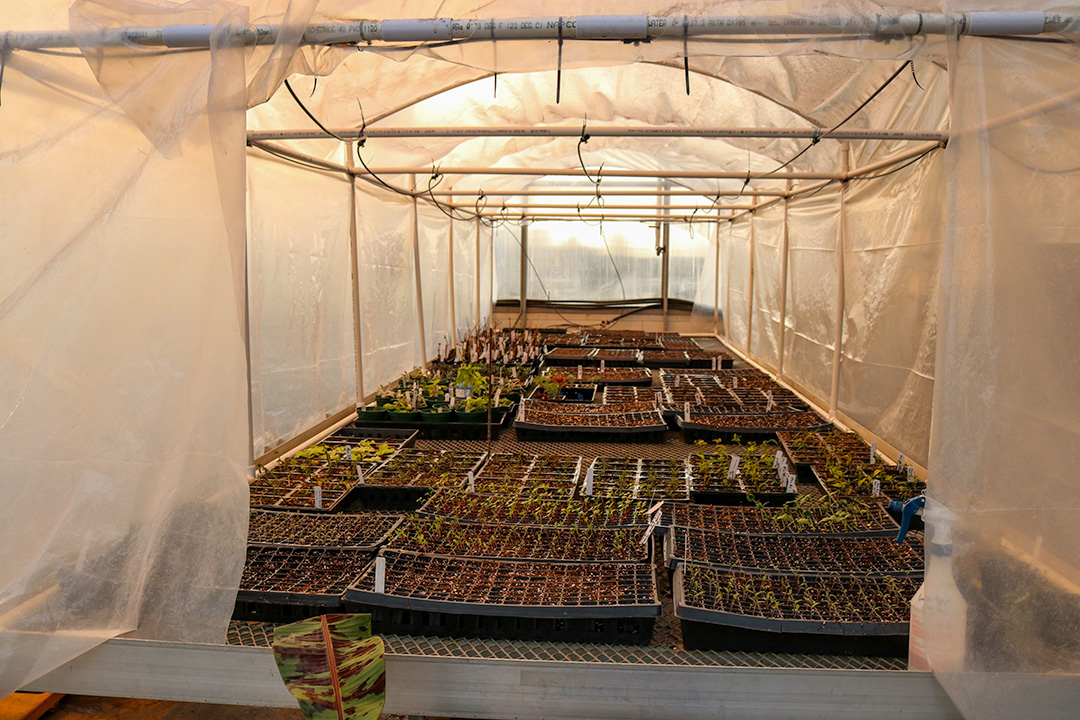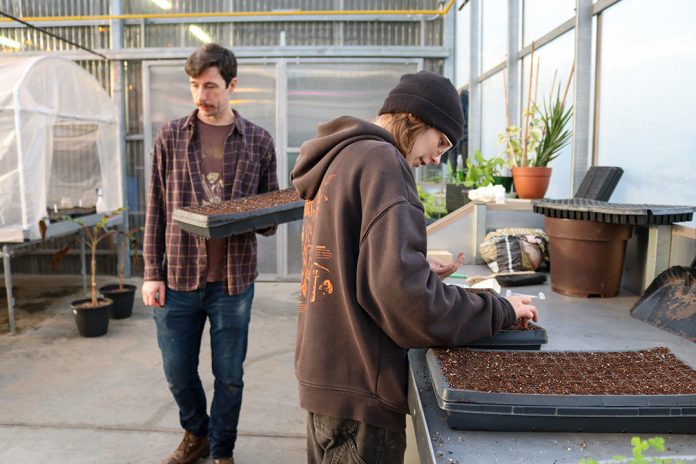Canada’s agricultural education is flourishing, with a new generation of students eagerly embracing the diverse opportunities in the field.
These students are not only learning about traditional farming practices but are also exploring innovative approaches and sustainable urban projects, fostering a deeper appreciation for agriculture.
The growing interest in farming among these students is creating a pathway for future employment opportunities that promise to make a meaningful impact on society.
Kelly O’Brien, associate dean of the faculty of hospitality and horticultural science at Durham College Whitby campus emphasizes the vast opportunities within agriculture.
“It’s not just hands-on dirty work. There’s more that can be involved from taking our program and building a career out of it,” she said.
The college’s sustainable urban agriculture initiatives have attracted attention from several donors, leading to their expansion. “It’s about sustaining our communities for the future and addressing issues like the food industry, food insecurity, and being more sustainable in our future,” O’Brien said.
O’Brien emphasizes the program’s appeal to those who prefer practical learning over traditional methods. “The work-integrated learning opportunities with this program are endless,” she said. “It’s two years of a college diploma, but it can be three years when you work on the farm, volunteer, and take these opportunities outside of the classroom.”

O’Brien also stresses the importance of holistic education. “We encourage students to explore opportunities outside the classroom – engaging in farm work, volunteering, and community involvement,” she said.
She added the projects on campus and the Barrett Centre Farm in Ajax are a testament to students’ initiative, leading to awareness and recognition by donors.
Alexander Dyton, a second-year Horticulture Technician student shares his personal motivation for entering the field.
“Most of my family isn’t really good with plants at all, so I wanted to break that generational curse and go into horticulture,” he said.
According to Dyton the horticulture field of work offers a multitude of facets and aspects that can bring happiness, serving as an excellent hobby, even if it doesn’t amount to a full-time job
Payton Archer, another second-year horticulture technician student, acknowledges the impact of Covid-19 pandemic on her decision to pursue agriculture.
“With the recent pandemic, it’s shown me the importance of agriculture and sustainability,” she said.
Archer’s role as a soil health coordinator during the summer highlights the broader significance of agricultural work. “Even during the summer, we had our farmers markets, providing access to locally grown food to people in the area,” she said. “We were able to donate food to Community Care Durham (CCD) , helping food-insecure communities access fresh-grown and clean food. That’s pretty cool.”
Andrew Guay, urban farm field supervisor at the Faculty of Hospitality and Horticultural Science, observes a cultural shift in career choices, particularly among Gen Z, who are seeking careers that offer “joy and passion”.
He describes agriculture as a passion-driven industry, focusing on its potential to address societal issues beyond just financial success.
Guay encourages students to explore the diverse opportunities within agriculture.
“There’s a unique opportunity in agriculture and horticulture, and there are surprising opportunities within these fields,” he said.
He urges those interested in agriculture to get involved and explore various placement opportunities, emphasizing that agriculture is not just a career choice but a fulfilling and enjoyable industry.




